Nick Oliveri talks Kyuss, QOTSA and Josh Homme
Plus new band with Joey Castillo...
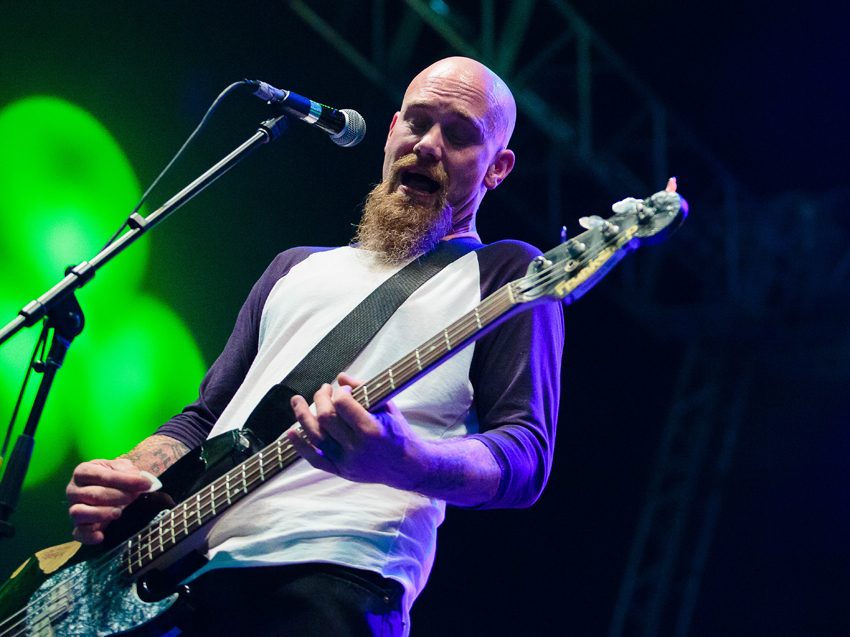
Nick Oliveri talks Kyuss, QOTSA and Josh Homme
While Queens Of The Stone Age may today be arena-filling, festival-headlining rock gods, it’d take a brave man to argue that the Josh Homme-led troupe have topped their classic albums Rated R and Songs For The Deaf.
Released in 2000 and 2002, respectively, both were filled with desert rock wig-outs and riff-heavy anthems, from Leg Of Lamb to No One Knows, Go With The Flow to Tension Headache. And at the heart of both records was the always-electrifying, snarling bass player Nick Oliveri.
Kicked out of Queens in 2004 amid accusations regarding his notorious temper, Oliveri has since gone on to launch a solo career and work with a host of bands such as Mondo Generator. He’s also contributed to Mark Lanegan’s much-lauded solo work.
It was while Oliveri was out on his latest acoustic solo tour – a few months after he had reunited on stage with his former QOTSA and Kyuss cohort Josh Homme for the first time in a decade (check the video below) – that we caught up with him to discuss the classic records that litter his career...
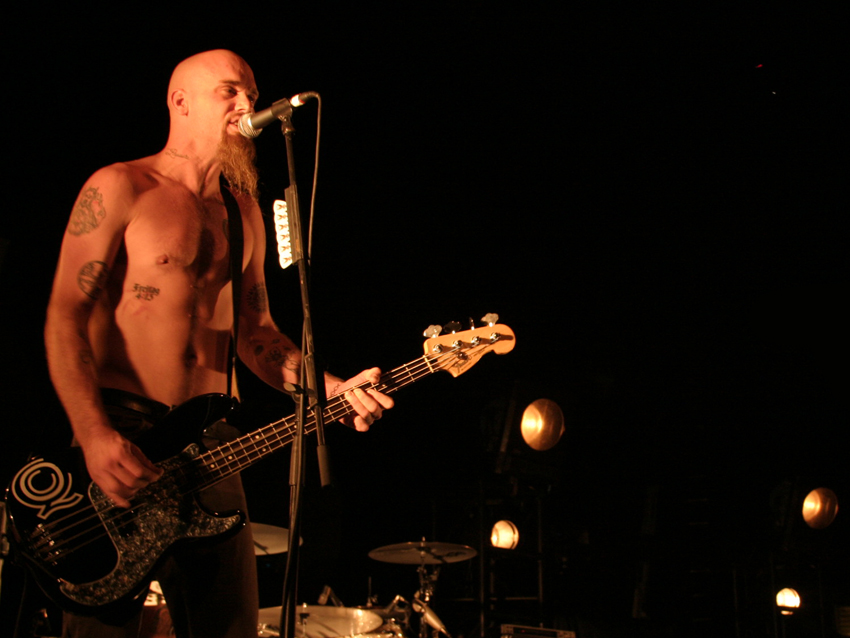
Early Years
"I’ve always been a big fan of Black Sabbath.
"I loved Ozzy as well, but I couldn’t figure out what Randy Rhodes was doing on guitar. But I could with the Ramones, so they taught me how to play. On the first Ramones record, you could unplug one side and play bass and then unplug the other side and play guitar.
"I could figure out those notes. Bands like Sabbath, Black Flag and Motörhead all inspired me to play. I was inspired by the punk spirit – I still listen to those bands religiously."
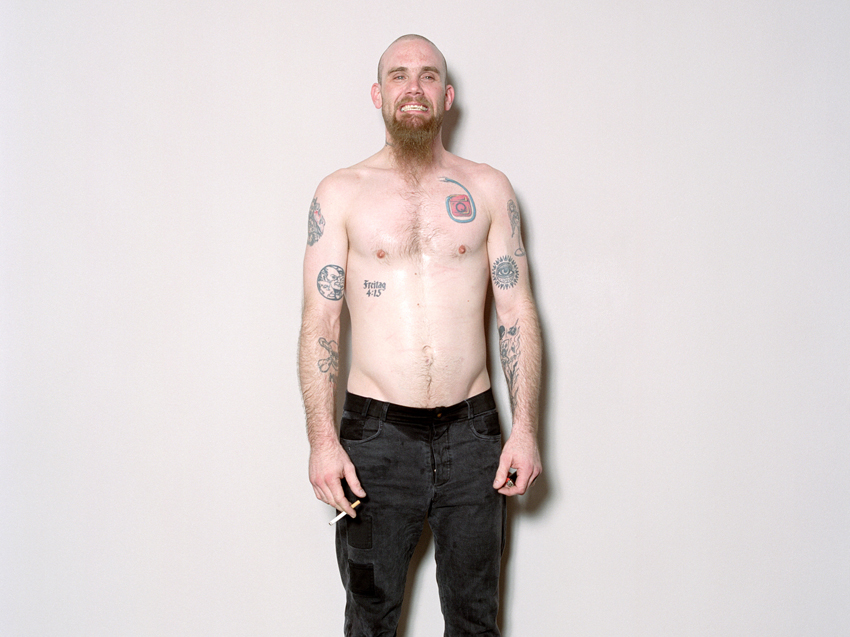
Kyuss
"Kyuss started because back then, when you were a kid, if you had a guitar, you could be in a band. You could get involved with a jam down the street.
"Brant [Bjork, Kyuss drummer] asked me to jam with him in 1987. I went home from school, got my guitar and little amp, and Josh [Homme] and Chris Cockrell were there. We played our first show in 1987 just at this party, and that’s how we got started.
"If you had a guitar and an amp, then you could jam, it wasn’t necessarily going to be good, but it wasn’t necessarily going to be bad either. You didn’t know what was going to happen, but you were going to have fun. That was part of being a kid in the desert. You had these wide-open spaces, and you could play loud without the cops coming.
"That’s how I started, but there are different ways. Like if you have the means to get to a guitar teacher. I would never tell anybody to not do that. If you can get schooled, do it. I didn’t have that opportunity, but some of the kids I played with had teachers, so I’d pick up things from them.
"I’d look at how they were doing their barre chords and stuff like that. I was very focused on wanting to play guitar, so I would blow off school a lot of the time to stay home and play. I looked at it that school was cutting into my guitar time, so I blew it off like a jackass."
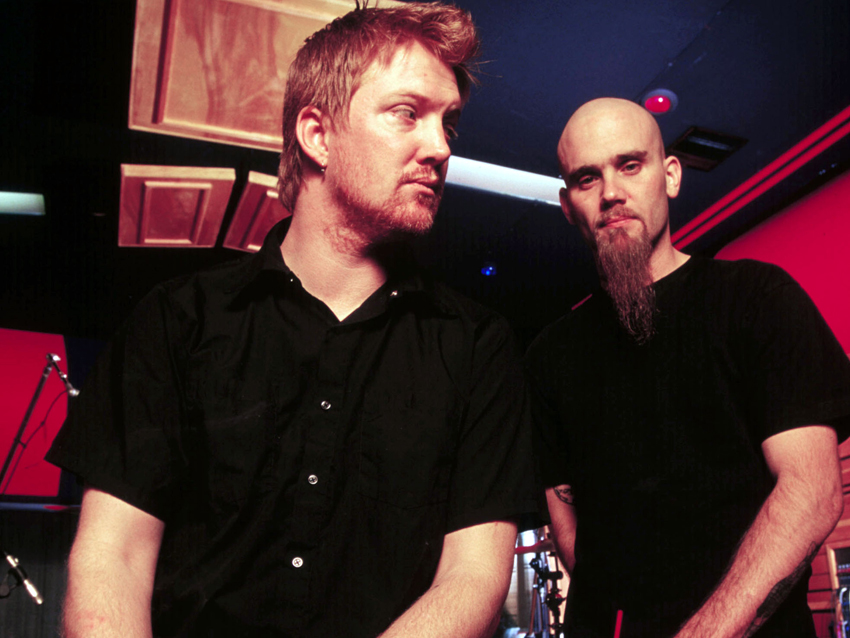
Blues For The Red Sun
"Chris Goss produced that album, and he was a key member in finding where Kyuss’ sound was going to go.
"From Wretch to Red Sun is a huge difference, and a lot of that is down to Chris. He took us under his wing and got us signed. He liked us as people and as musicians. I owe everything I’m able to play right now in any public venue to him.
"We experimented. We were at this great studio, Sound City; we had this bass tunnel down a hallway, and we tried different things. We went for takes on two-inch tape and played live in the studio, and we captured a cool sound.
"I don’t know if people were ready for that when we were first doing it, but it eventually came around. It was tough coming out of the desert at the same time as Seattle grunge was blowing up. It was tough to get recognised, but we kept plugging away at it, and it’s cool that it caught on later. That album was before it’s time, I guess."
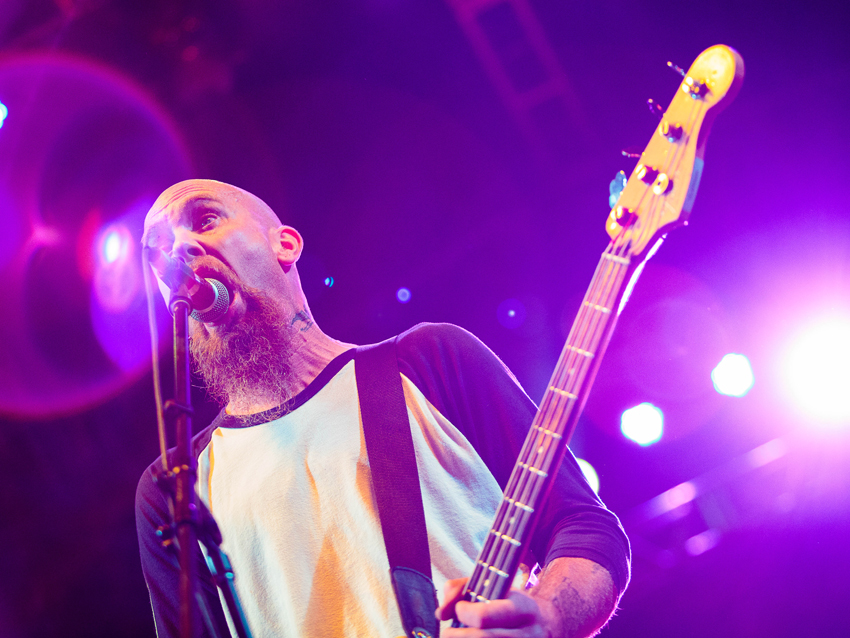
Rated R
"We had these songs and needed to write a bunch more. So Josh and I went into the desert, into this place in Twentynine Palms, and took our little amps there along with pen and paper and all our supplies.
"We went up there and finished the record over four nights. We had a hammock out there on the porch, and we’d write out there until late at night. Then we’d go inside, close the windows, crank up the AC and play loud.
"We came up with some very interesting stuff. It came out of being tired, needing sleep and needing to get the record done. By day three we were coming up with weird stuff like Better Living Through Chemistry and these really interesting songs. We were bouncing off each other. We had freedom to do whatever we wanted.
"When you’re in the desert, there’s a weird vibe in the air, and we always kept our creative control. We never asked the label anything. We’d wait until the record was finished and then turn it in. Chris Goss produced that, and he added some great stuff.
"That was a great team, and we tried every idea we had in that studio. I have so many different versions of every single song. We’d work until seven in the morning and then listen to what we’d done. Queens was a great time for me, and I loved dong it."
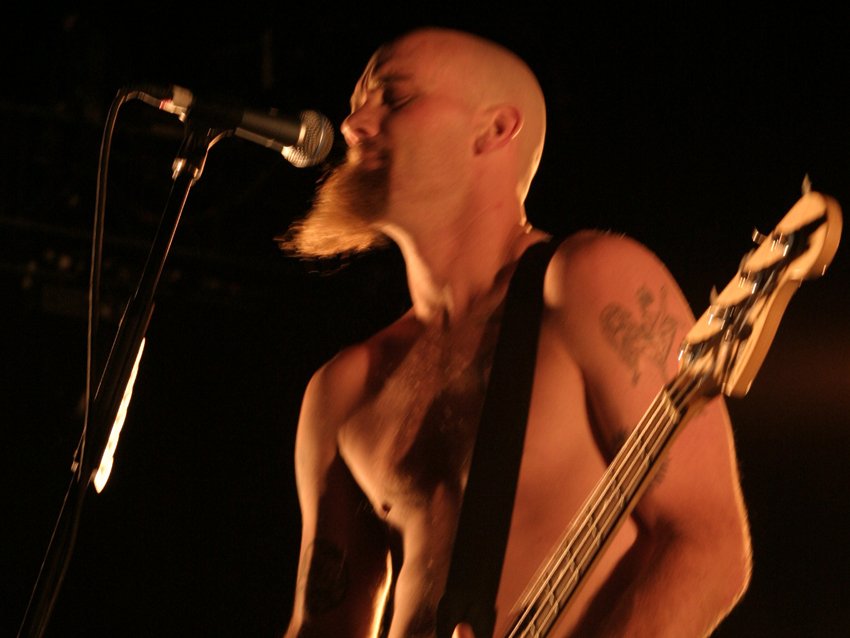
Songs For The Deaf
"There’s a song called Song For The Dead, which is a collaboration of me, Mark [Lanegan] and Josh, and that song is great because all three of us were writing.
"I love the songs that were collaborations. I think Josh’s input into my songs make them better. I don’t know if he feels the same way about my input on his songs. Mark can put his voice on any song and make it better, because he is an amazing singer – he’s one of the best singers in the world. Josh and Mark are two of my favourite songwriters, so it’s a great honour to be part of those records. We had a blast. The bad times in Queens were better than the good times in some bands I’ve been in.
"Playing with Dave Grohl [on Songs For The Deaf and the following world tour] was fantastic. It was a dream come true. I can’t even put it into words – it was just great. He’s a master on drums and a great person. He came in and killed it. Every night on tour he killed it. It was perfect.
"He lifted our game up as well. As good as we were as a band and individually, when playing with someone of that calibre you have to bring your game up to his or it’d be noticeable. You had to play super good with Dave; otherwise, you’d be the weak link."
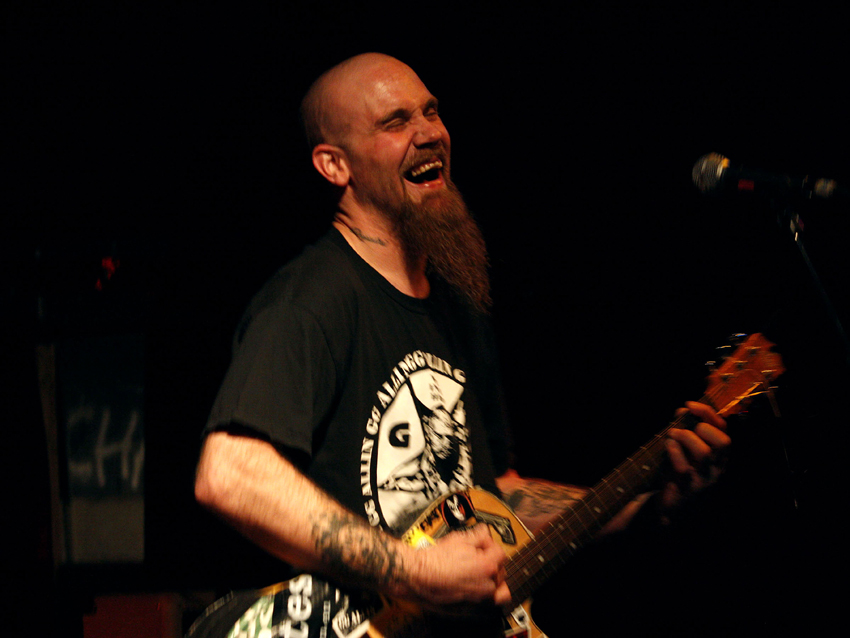
Like Clockwork
"[Contributing vocals to Like Clockwork and performing with Queens of the Stone Age live again] was fantastic. I asked Josh a couple of times if he wanted me to come up and sing at a show, but it wasn’t the right time.
"It’s Josh’s band, and if he wanted it to happen and I was around, then it would happen. I had to wait for him. He asked me at the show and I did it. He talked about doing some other stuff on Halloween - my band is opening up for them in Los Angeles, so I may get up and do a couple of numbers. We’ll have to wait and see.
"I’ve got Joey Castillo on drums for the new band I’m in, and we’re going to tour this new record and have some fun. It’s been a couple of years since I’ve had a record out, so I’m going to try and get everywhere with it. Then getting working on another new record shortly thereafter would be ideal."
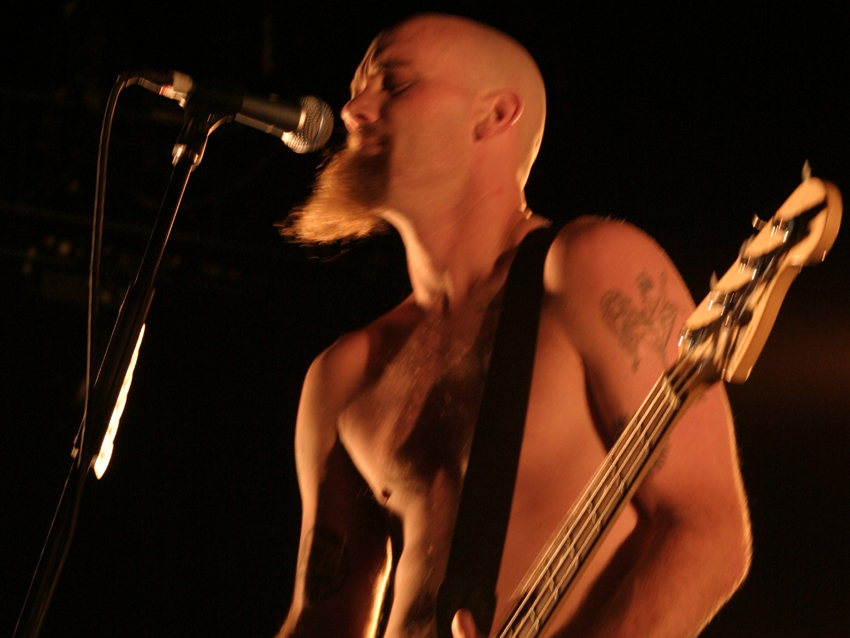
Gear
"If I’m using rental gear, I’ll use an Ampeg – an old one if I can get one.
"I’ve got an 8x10 cabinet that travels great and sounds great. At home I use an 800 watt head – it’s pretty loud. I have these two Orange 4x10 cabinets that are super loud.
"I use Dan Armstrong basses and Fender. For my acoustic stuff, I have a Hofner and a Maton. At home I’ve got a Gibson L-6S, and I like to write on that."
Rich is a teacher, one time Rhythm staff writer and experienced freelance journalist who has interviewed countless revered musicians, engineers, producers and stars for the our world-leading music making portfolio, including such titles as Rhythm, Total Guitar, Guitarist, Guitar World, and MusicRadar. His victims include such luminaries as Ice T, Mark Guilani and Jamie Oliver (the drumming one).
